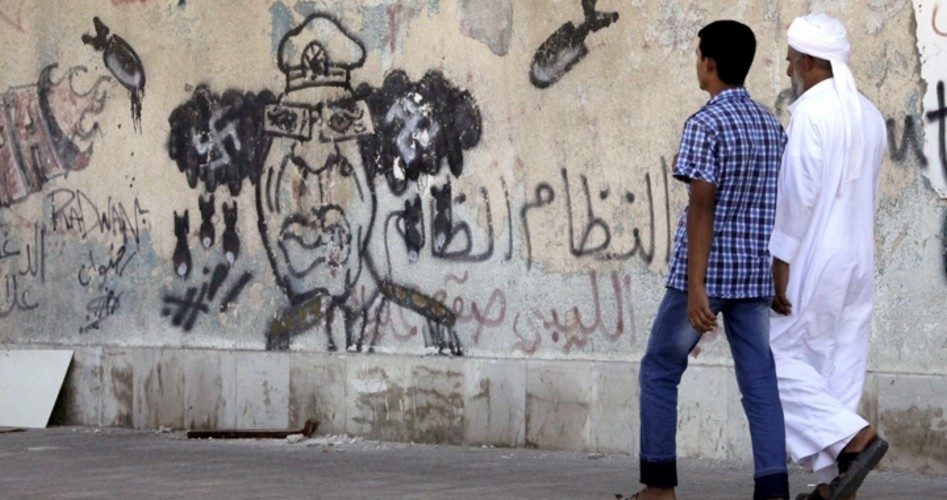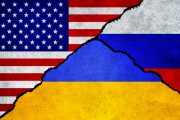
As fallout from the deadly September 11 terror strike on a U.S. diplomatic mission in Libya continues to grab headlines, GOP lawmakers sent a letter to President Obama suggesting the Benghazi tragedy potentially could have been avoided or at least minimized if not for political posturing — an administration policy aimed at concealing the disastrous results of American military intervention there. Now Congress wants answers.
Among a wide range of concerns, the Republican congressmen want to know why security at the compound was so ineffective despite repeated warnings about the extreme and growing threats. The letter also demands to know why the administration decided to pursue a policy of “normalization” in Libya, a dangerous country so recently ravaged by violence and a bloody civil war.
Separately, analysts and former officials are wondering whether anything could have been done to avert the tragedy or at least contain it after the well-coordinated attack began. According to news reports, the U.S. government had a drone in the sky shortly after the terrorist assault on the compound began.
The drone operators actually watched the final hours of the tragedy unfold, multiple media outlets have reported. Some critics also suggested that American security forces in the region could have and should have been deployed to Benghazi immediately in an effort to rescue U.S. personnel under siege.
In an October 19 letter sent to President Obama, House Oversight Committee Chairman Rep. Darrell Issa (R-Calif.) and Rep. Jason Chaffetz (R-Utah), chairman of the National Security Subcommittee, essentially accused the administration of denying proper security to the mission in Libya for political reasons. Senior U.S. officials, the letter explained, supplied information demonstrating that the administration repeatedly rejected requests for more security despite increasing levels of violence.
Even worse, they wrote, the administration “systematically decreased existing security to dangerous and ineffective levels.” U.S. Ambassador Christopher Stevens, who was killed in the attack, had warned about the dire situation over and over again in the days and hours leading up to the attack.
In fact, the letter detailed numerous instances of violence aimed at Westerners and the new regime. The increasingly brazen attacks were even cited by diplomatic personnel, including Ambassador Stevens, as they practically begged the State Department for more security assistance.
Meanwhile, multiple U.S. officials in Libya repeatedly warned Washington, D.C., about the escalating problems. In September, not long before he was killed, Ambassador Stevens reported that Benghazi had entered a state of “maximum alert” as extreme Islamist influence was exploding in the area.
Instead of responding with assistance, however, the administration was withdrawing security assets.
“We have been told repeatedly that the administration did this to effectuate a policy of ‘normalization’ in Libya after the conclusion of its civil war. These actions not only resulted in extreme vulnerability, but also undermined Ambassador Stevens and the diplomatic mission,” Rep. Issa and Rep. Chaffetz said in the letter. “The normalization process, which began in November 2011, appeared to have been aimed at conveying the impression that the situation in Libya was getting better, not worse.”
Despite some claims to the contrary, the letter added, the deadly decision to refuse security requests while pursuing the “normalization” policy had nothing to do with budgetary constraints, as even senior State Department officials testified. Instead, it appears to have been a political ploy to keep the rapidly deteriorating situation in Libya, where Obama unlawfully waged war without even consulting Congress, from becoming yet another potential scandal for the administration.
“The American people have a right to know why the administration withdrew security resources over the objections of embassy officials and why their government did not heed the warnings of Ambassador Stevens and his colleagues,” the lawmakers said, demanding answers. “Whether based on political concerns or bureaucratic neglect, the actions of this administration contributed to an inadequate and ineffective security posture in Libya as it emerged from civil war.”
Americans deserve a “complete explanation” about why the administration decided to pursue the half-baked “normalized presence” in Libya “at what now appears to be at the cost of endangering American lives,” according to the letter. “These critical foreign policy decisions are not made by low or mid-level career officials — they are typically made through a well-structured and well-reasoned process that includes the National Security Council at the White House. The ultimate responsibility rests with you as the President of the United States.”
The Republicans also expressed concerns about the administration’s repeated false claims that the attack was just a protest over a YouTube video that spiraled out of control. Numerous top officials parroted that narrative over and over again, citing the “intelligence community.” However, it is now known that the “intelligence community” knew it was a terrorist attack almost from the beginning.
Citing witnesses and photographic evidence, the two Republicans alleged that the U.S. compound in Benghazi did not even meet traditional diplomatic security standards. And if the State Department cannot meet those guidelines for some reason, it must submit a waiver notification to Congress. Apparently none was ever provided, the letter stated.
Benghazi, of course, was the city at the heart of the Western-backed “revolution” that brought about regime change in Libya with overwhelming military support from the Obama administration. Shortly after the collapse of the Gadhafi dictatorship, the al Qaeda flag was flying over the city’s court house.
Despite all of that, the diplomatic compound there never received the amount of security personnel that even senior State Department officials said was needed. Even the U.S. Embassy in Tripoli did not have enough security officers, according to officials cited in the letter.
Democrats criticized the GOP lawmakers’ efforts to get answers, with the Oversight Committee’s top Democrat, Rep. Elijah Cummings of Maryland, calling it an “undeniably partisan” scheme to make the tragedy a political issue. Ambassador Stevens’ father has also urged people not to politicize the issue as Obama tried to deflect mounting criticism over the attack from Republicans.
Meanwhile, analysts and former officials have suggested that even once the attack began, the U.S. government should have taken immediate action to rescue its personnel. Sources cited by CBS News claimed, for example, that a Predator drone was in the sky watching the attack as it happened. For reasons that remain unclear and in dispute, nothing was done.
Security personnel could have been scrambled to the scene as well, according to experts, who pointed out that the deadly assault lasted for hours. U.S. military teams are known to be all over Europe and the Middle East.
“You find a way to make this happen,” said retired CIA officer Gary Berntsen, who led the U.S. team that responded after the terror attacks on U.S. diplomats in East Africa. “There isn’t a plan for every single engagement. Sometimes you have to be able to make adjustments. They made zero adjustments in this. They stood and they watched and our people died.”
Perhaps an even more important question, however, has barely been explored by the establishment press or politicians so far. Aside from the constitutional problems, was arming, training, and financing known terror leaders — more than a few of whom were openly affiliated with al Qaeda — to overthrow a foreign government a wise policy decision?
Based on recent developments and even the broader historical perspective, the answer appears to be that the lawless war was a terrible move for more than a few reasons. Recent reports have suggested, for example, that a known extremist who was held in Guantanamo Bay before helping lead Western-backed forces against Tripoli may have even been behind the attack on the U.S. mission.
Then there is the question of blowback: the consequences of the American government’s foreign intervention that so often come back to haunt the United States and even the world. Former CIA chief Michael Hayden has even suggested the attack in Libya was the result of U.S. intervention there.
A year after being “liberated,” meanwhile, Libya remains in chaos as various factions, including Gadhafi loyalists, continue to wage war against each other. The embattled central government in Tripoli, despite firm backing from the United Nations, NATO, and Obama, is widely perceived as illegitimate. Weapons from the war are now all over the region. And the problems are likely to keep getting worse.
Related articles:
Islamist Mobs Attack U.S. Missions in Libya and Egypt; Ambassador Dead
Intervention in Libya Led to Attack on U.S. Consulate, Ex-CIA Chief Says
Obama Under Fire for Failure to Defend Free Speech Amid Embassy Crisis
Gadhafi Loyalists Still Battling New Western-backed Rulers in Libya
Obama, Biden Didn’t Know About Libya Security Requests, Spokesmen Say
Republicans Troubled by Romney Remarks on Embassy Attacks
Al Qaeda Flag Flies in Libya As Conflict Rages
UN, Obama Fighting Alongside Al-Qaeda in Libya
Despite Violence, UN & Obama Hail Libya Election
Clinton: Obama Will Ignore Congress on Libya War
UN Report: NATO’s Libya War Armed al-Qaeda
Islamist Mob Attacks U.S. Embassy in Yemen; Analysts Cite Blowback
“Libyan Rebels” Create Central Bank, Oil Company
Photo: In this Sept. 18, 2012 photo, Libyans walk by an anti-Moammar Gadhafi mural in Benghazi, Libya.: AP Images


